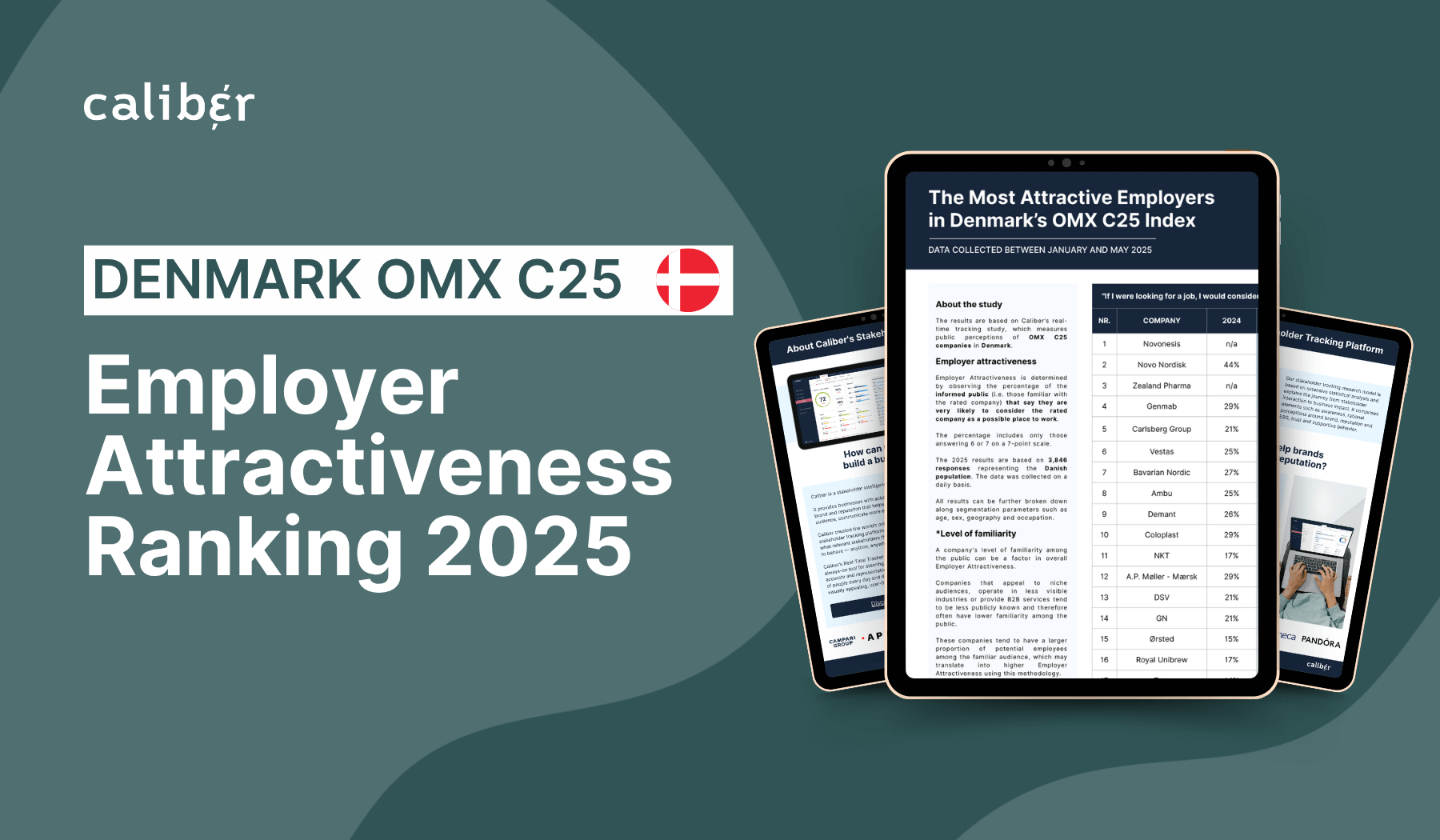
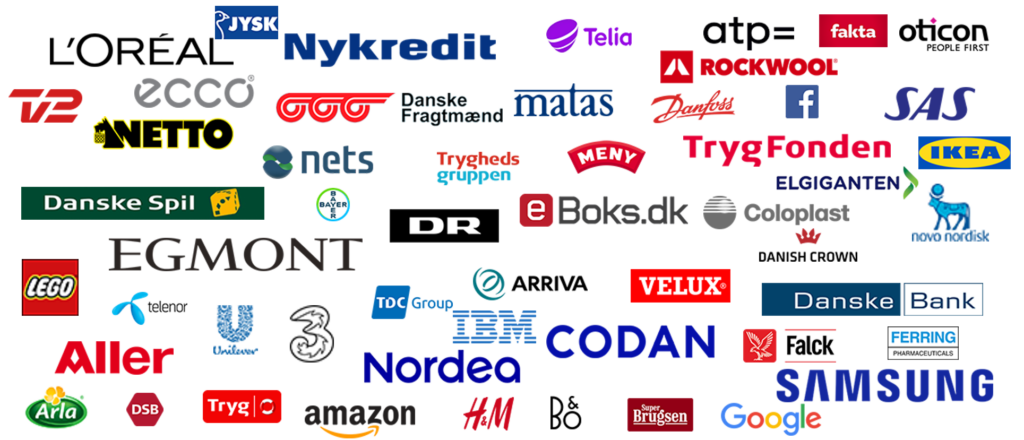
2016 has been a remarkable year for Caliber as we started monitoring the brands and reputations of leading organizations in Denmark on a daily basis. Our work has resulted in some very interesting insights, the essence of which we are sharing in this article.
Organizations that manage to win the trust and affection of the public are perceived to go beyond offering reliable and high-quality products & services – they are seen as responsible entities that stand for something people can relate to and that keep their promises.
When we look at what elements in the brand and reputation of these companies drive trust and affection the most, we find things like integrity, authenticity, and relevance.
It is also noticeable that most organizations favored by the Danish public are of local origin. Danfoss and Grundfos, VELUX and Coloplast, Georg Jensen, and Bang & Olufsen are all iconic enterprises with deep roots in Danish history and culture.
Norwegian Rema1000 (rank 6) and Swedish IKEA (rank 15) are the only “foreigners” that benefit from strong public perceptions in Denmark.
The highest-ranked non-Scandinavian organizations on the list are the German toy manufacturer Playmobil (rank 42) and US-based Google (rank 44) followed by Korean Samsung, German Siemens, and US-based Amazon – all ranked outside the top 50.
In 2016 we saw the perceptions of a handful of companies, long considered strong brands with impeccable reputations, deteriorate dramatically.
Novo Nordisk, which for many years used to be ranked as one of Denmark’s most reputable companies and strongest brands, has lost its shine after a year of increasing pricing pressure for diabetes treatments in the U.S., a sharp drop in its stock price, a management shake-up and staff cutbacks.
It is now ranked outside of the top in our list of most trusted and liked companies. A similar fate afflicted A.P. Moller – Maersk, which dropped from a stable top-three position to rank 38, likely following its commercial challenges, CEO dismissal, and ongoing negative coverage in 2016.
Apple, not so long ago every agency’s and consumer’s “dream brand”, is today ranked 90 in our list!
Of course, everything is relative, and the actual rank depends on the number and type of organizations being measured. But one thing is certain – no organization can afford to ignore negative news for too long without losing public trust and affection.
It is common in Denmark for commercial companies to be owned by foundations, and often, the two organizations share similar brand names.
This is true for Carlsberg and Carlsbergfondet, Novo Nordisk and Novo Nordisk Fonden, VELUX and Velux Fonden, Nordea Bank and Nordea Fonden, Rockwool International and Rockwool Fonden and many others.
The fact that people’s perceptions of commercial companies and associated foundations are closely interlinked may not be so surprising. What is interesting, however, is how this relationship works in good and bad times.
Foundations are organizations that engage in projects that benefit society and, therefore, enjoy positive media coverage and public trust and affection. Their associated companies typically enjoy a positive spill-over effect, contributing to their own brand and reputation strength.
However, when an associated company enters a crisis, the negative discourse surrounding it has an immediate negative effect on the corresponding foundation. This effect is apparently so strong that the foundation’s philanthropic work is simply not enough to offset it.
This has been true in 2016 for Novo Nordisk Fonden, Nordea Fonden, and Egmont Fonden which all suffered from crises originating in their associated commercial companies.
Pharmaceutical and Industrial companies tend to have the strongest brands and reputations in Denmark. Companies within the Financial, Telecom, and Energy & Utilities sectors are among the most distrusted in the country.
Interestingly, banks are the organizations of which public perceptions are most polarized. While most organizations are perceived more or less homogeneously, there are people who really love banks and those who really hate them. The share of the latter group clearly prevailed in 2016.
If you would like to learn more about Caliber’s Real-Time Tracker and get a demo license, contact us at [email protected].

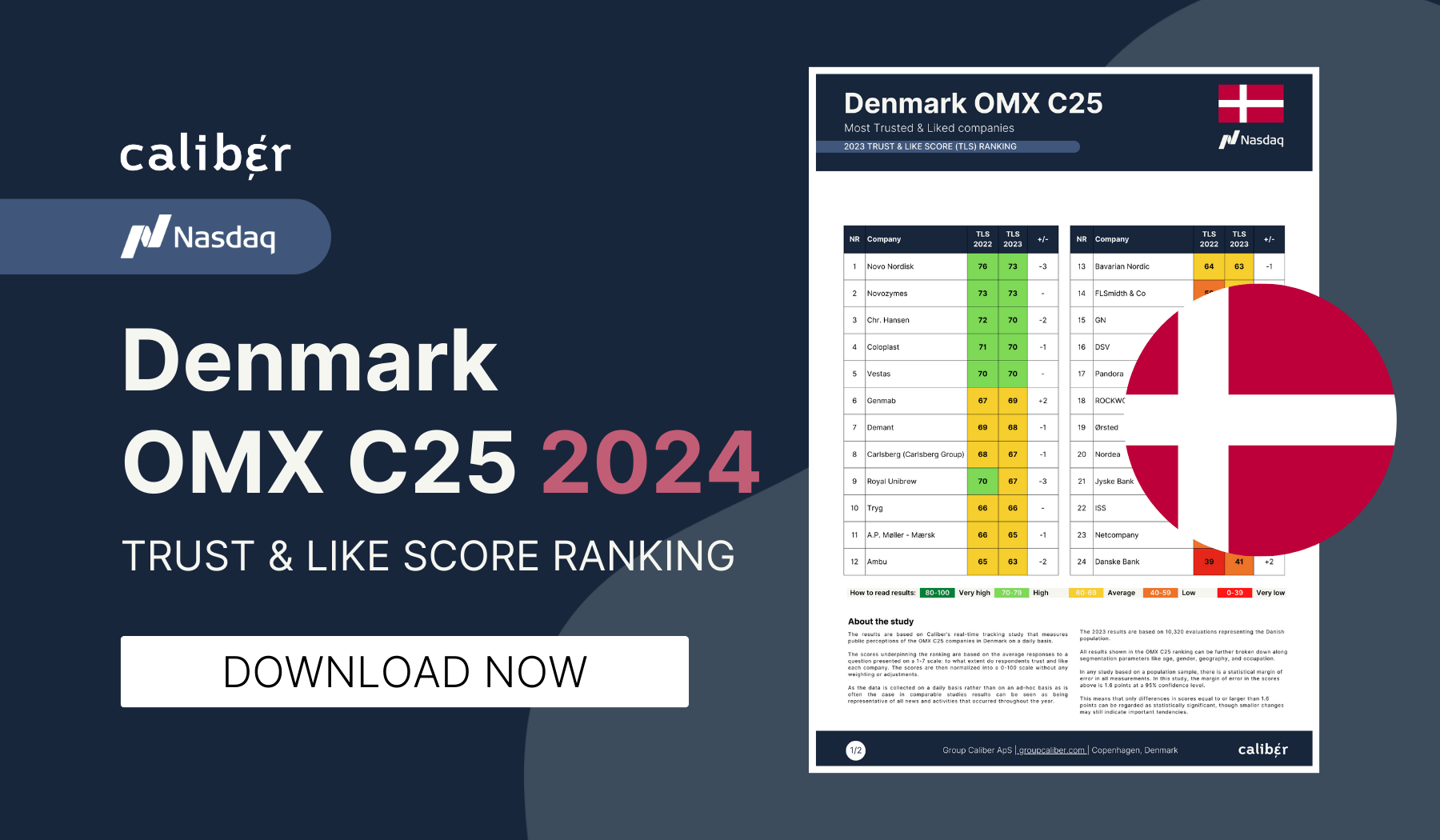
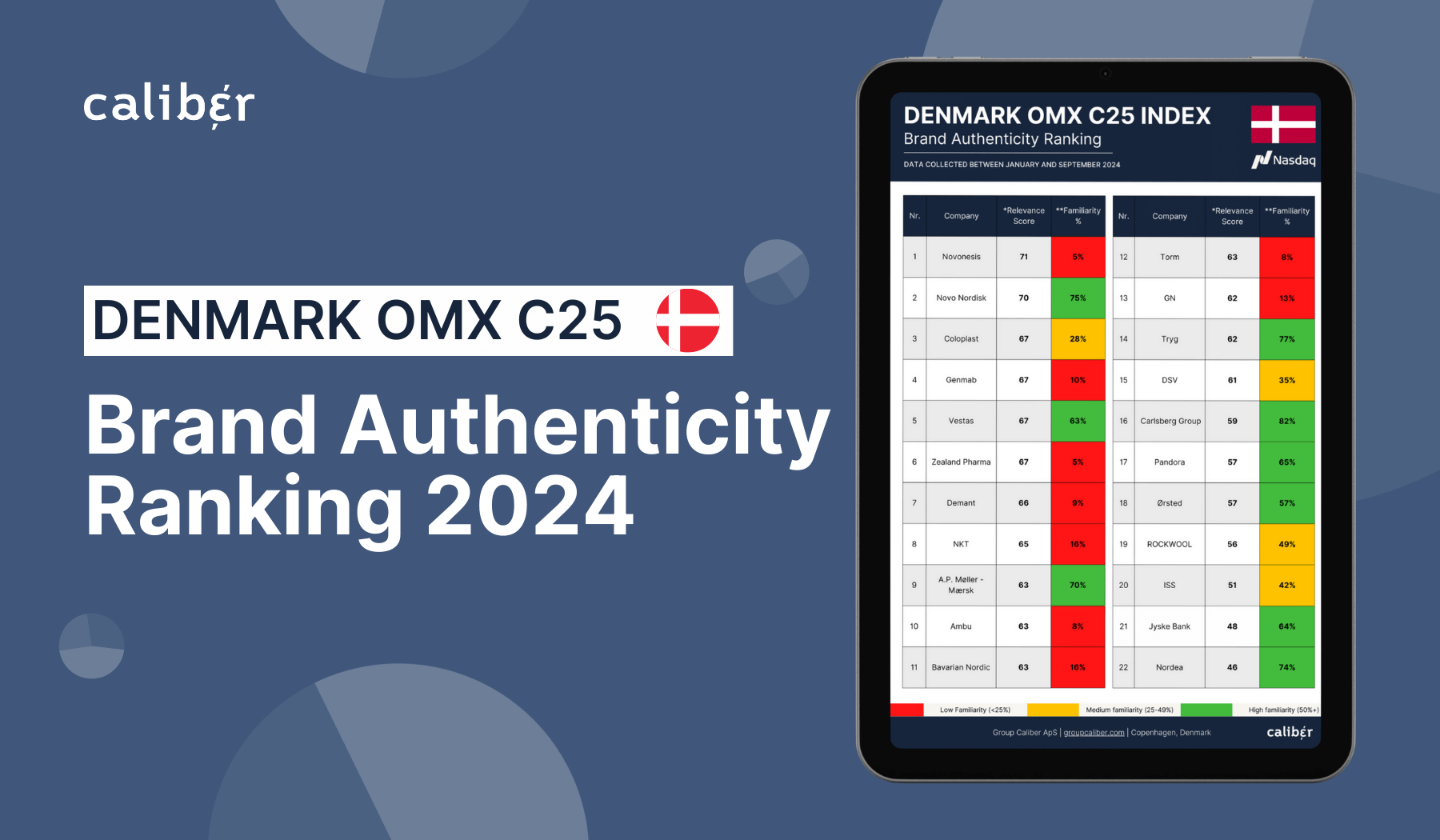
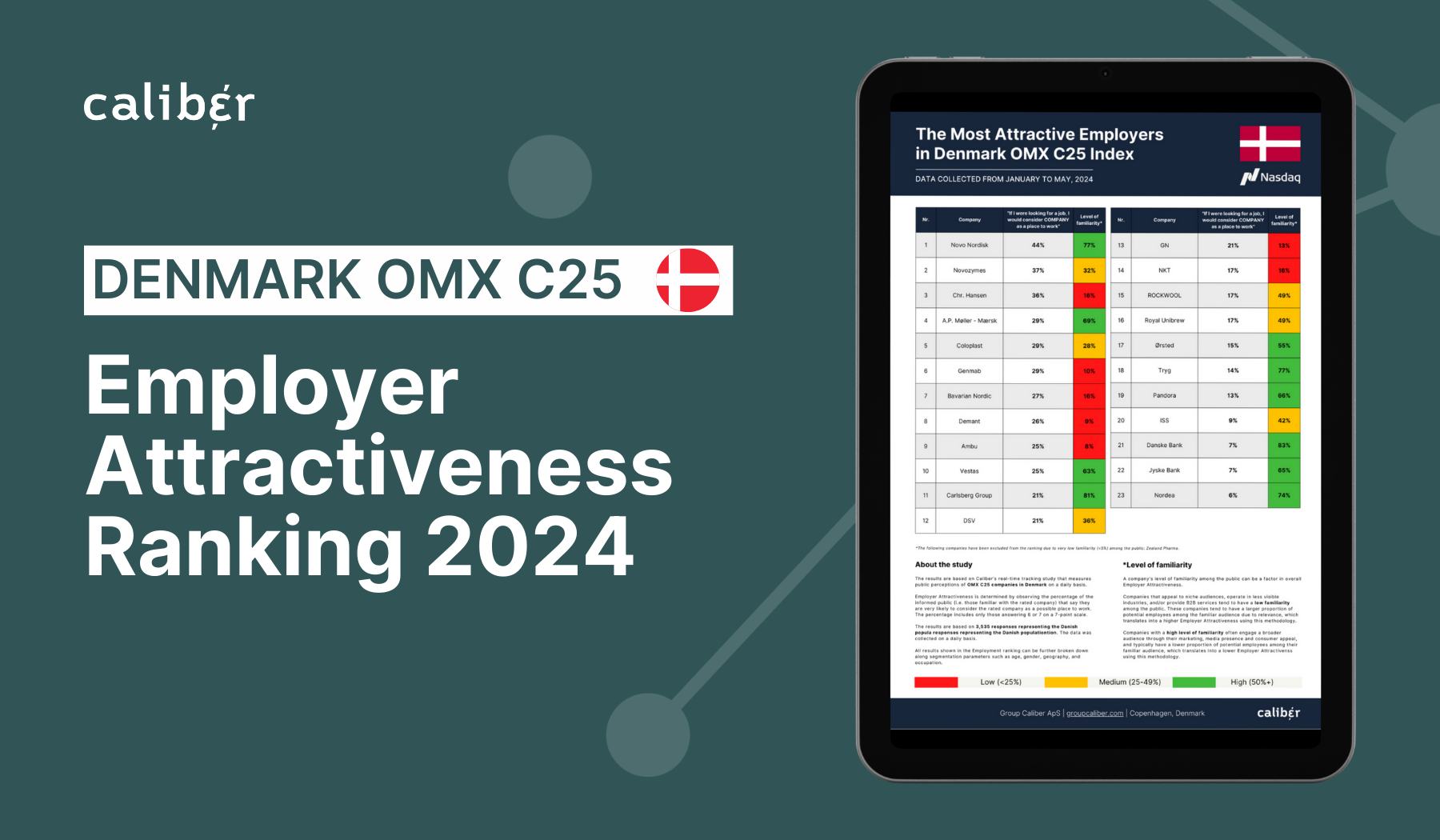
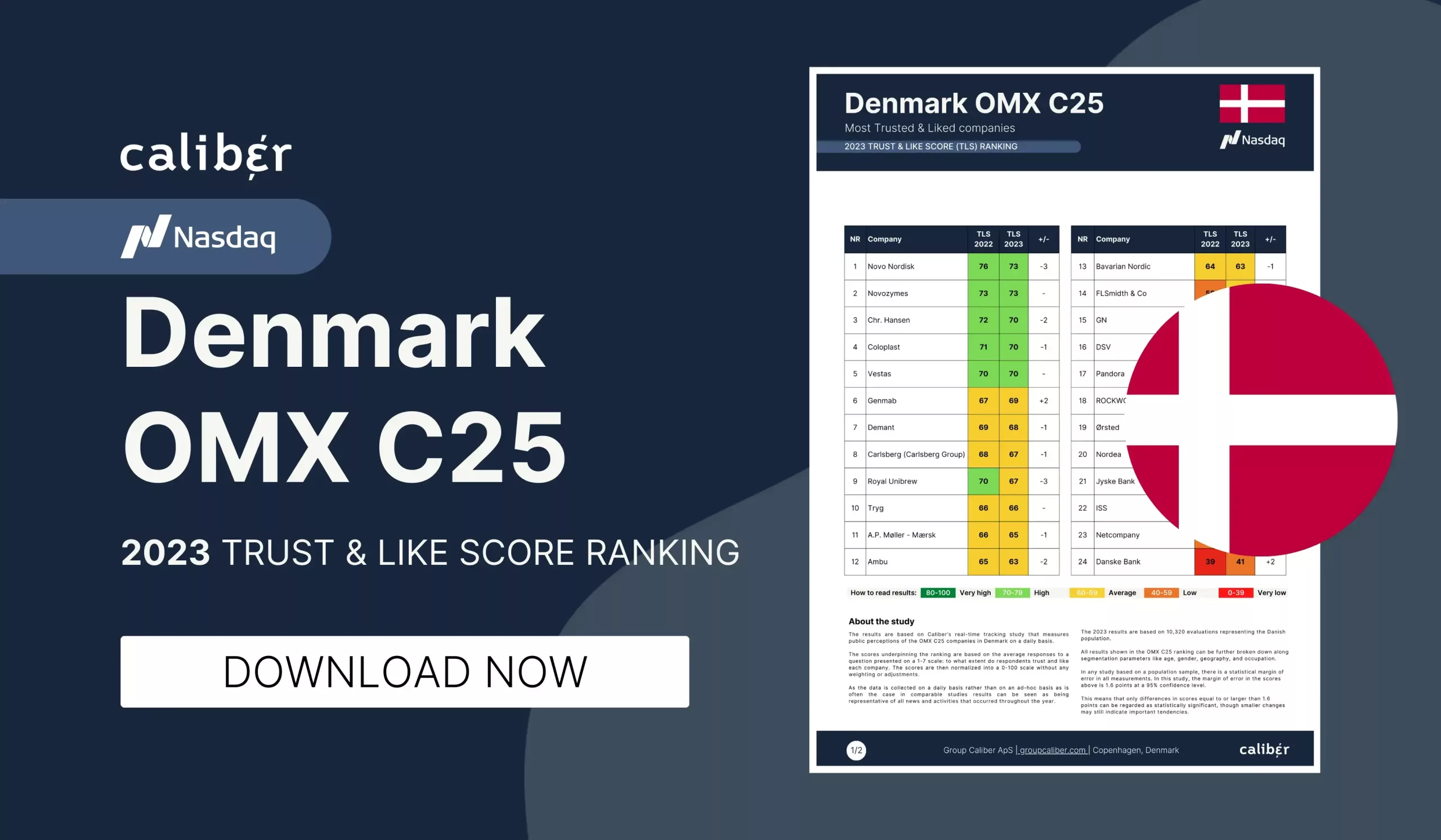

© 2024 Group Caliber | All Rights Reserved | VAT: DK39314320